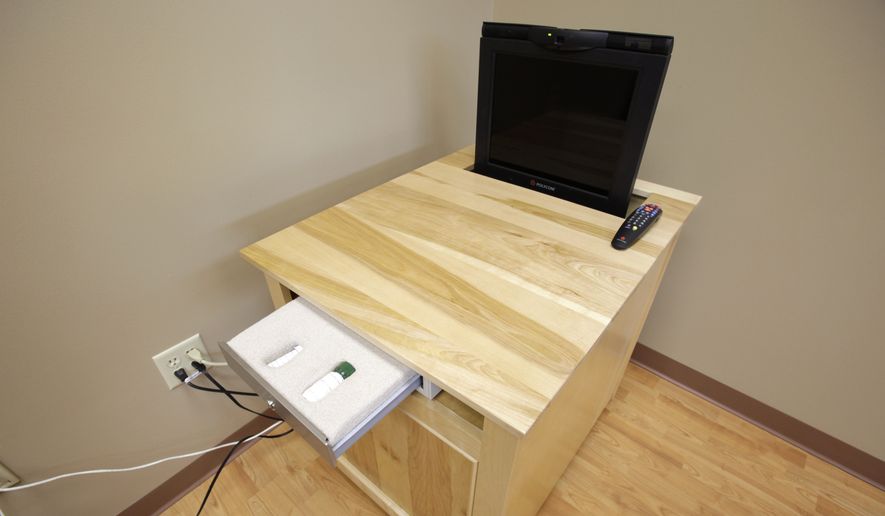An Arkansas law regulating the use of abortion pills and scheduled to go into effect Friday will receive a federal court hearing this week, as abortion clinic owners seek to block the law.
U.S. District Judge Kristine Baker has called for a hearing Wednesday afternoon to give attorneys for Planned Parenthood of the Heartland a chance to argue why the law, which requires medication abortions to be conducted according to Food and Drug Administration rules, should be stayed.
The abortion group says the law is so burdensome that it will end its abortion services in Arkansas because its clinics in Fayetteville and Little Rock perform only medication abortions.
The law will be defended by lawyers with Arkansas Attorney General Leslie Rutledge’s office. Pulaski County prosecutor Larry Jegley and Washington County prosecutor Matt Durrett are named as defendants.
Arkansas lawmakers passed the legislation this year to force abortion clinics to obey FDA protocol, which says abortion-inducing drugs can be used only in the first seven weeks of a pregnancy. It also says the patient should be given 600 milligrams of mifepristone pills on Day One and 400 milligrams of misoprostol pills on Day Three, all under a doctor’s supervision at a medical facility. The woman must schedule a follow-up visit around Day 14 to make sure the pregnancy was terminated completely.
Use of off-label or “evidence based” regimens may be deadly, the Arkansas law says. It cites a 2011 FDA report that said that since the agency approved the abortion pill regimen in September 2000, it has learned of 2,207 “adverse events,” including 14 deaths, 612 hospitalizations, 339 blood transfusions and 256 infections.
Abortion clinics dispute that by saying medication abortions are “very safe” and can be used on pregnancies up to nine weeks’ gestation.
They say their industry-approved regimen of a lower-dose (200 milligrams) mifepristone pill followed about eight hours later by the dose of misoprostol is superior to the “outdated” FDA protocol. This off-label regimen also allows women to get their first pill in the presence of a doctor but take the second dose home to self-administer. A two-week follow-up visit is scheduled.
“Medication abortion gives a woman the option of a more private, and what may feel like a less invasive, method of ending a pregnancy in a setting in which she feels most comfortable,” said Planned Parenthood of the Heartland.
The abortion group also is fighting Arkansas Act 577’s requirement that abortion doctors have contracts with physicians who have local hospital-admitting privileges for emergencies, such as ectopic pregnancies, sepsis or bleeding. Each abortion patient is supposed to receive the name and contact information for that doctor and hospital from the abortion physician.
Planned Parenthood officials say they cannot find such backup physicians and the law will therefore force them to stop offering medication abortions at their Fayetteville and Little Rock centers. Instead, Arkansas women will be forced to go to different Little Rock clinics that provide surgical abortions, or go out of state.
These restrictions “will hurt women by shutting down access to safe medical care,” said Dr. Stephanie Ho, Planned Parenthood of the Heartland’s provider in Arkansas and a plaintiff in the lawsuit.
• Cheryl Wetzstein can be reached at cwetzstein@washingtontimes.com.




Please read our comment policy before commenting.